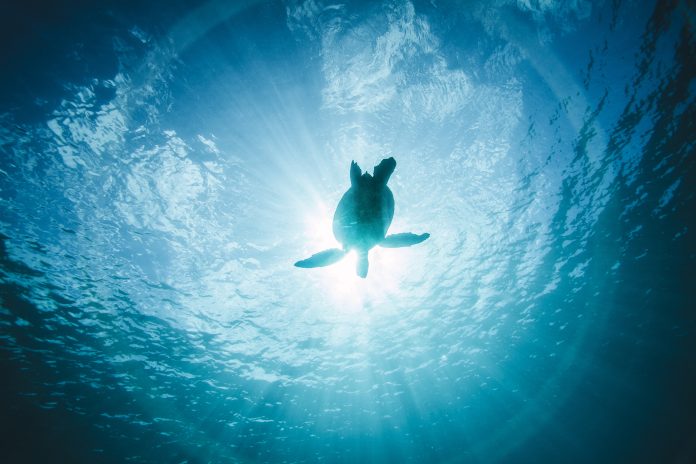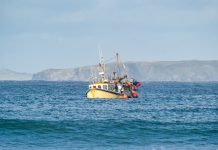Charlina Vitcheva, Director-General at DG MARE, European Commission, explains why protecting the ocean is a crucial priority for the European Union
The ocean is essential for sustaining all life on our planet. It is our climate regulator, our source of nutritious and healthy food, and our engine for development. It is our shared responsibility to protect it.
Ocean protection: Significant advancements in 2024
Protecting the ocean is a key priority for the European Union (EU). We are committed to ensuring that the ocean is safe, secure, clean, healthy, and sustainably managed.
A safe and secure ocean is the prerequisite for preserving our interests at sea, including the freedom of navigation, the supply of essential materials, and the protection of our activities, citizens and infrastructure. In 2023, the Council adopted the revised Maritime Security Strategy and its action plan to better equip the EU and its Member States to face the new challenges arising at sea.
A milestone for a healthy ocean is the Treaty of the High Seas on Biodiversity Beyond National Jurisdiction (BBNJ). This historic agreement, to which the EU has contributed, will enable the establishment of marine protected areas in the High Seas to preserve biodiversity and meet the target of protecting at least 30% of the planet by 2030.
In 2024, we announced 40 commitments worth €3.5 billion to protect the ocean and promote sustainability, from sustainable fisheries to climate change, marine pollution to research.
At the same time, we are investing in tools to help us find the best possible solutions for the future of our ocean. Last June, we unveiled the first prototype of the Digital Twin Ocean. By virtually replicating the ocean with live and historical data, researchers and policymakers can simulate actions to protect it better.
In addition, Maritime Spatial Planning (MSP) can help us identify the environmental impacts of maritime activities and avoid or mitigate them at an early stage. With a dedicated Directive on MSP, the EU is at the forefront of sea space planning, in cooperation with IOC-UNESCO and the MSP Global project.
Sustainable international fisheries and food security
The EU supports the sustainable fisheries and aquaculture sector to ensure food and nutrition security. We are the world’s second-largest market for fishery and aquaculture products in terms of trade, and we strive to ensure that only products that are sustainably sourced and produced reach our markets.
However, fisheries do not exist in a vacuum. They can only be sustainable if this is the case on a global scale. This is why it is important to ensure a level playing field for fishers, protect declining fish stocks and regulate the impact on the marine environment.
Within Regional Fisheries Management Organisations (RFMOs), we foster measures at the international level for the conservation and sustainable management of highly migratory or straddling fish species, such as tuna species and sharks.
We have concluded several Sustainable Fisheries Partnership Agreements (SFPAs) with non-EU countries. These agreements allow EU vessels to fish in those countries’ exclusive economic zones (EEZs) while supporting local fishing communities and sustainable fisheries management and control.
The EU is also pursuing a zero-tolerance approach against illegal, unreported and unregulated (IUU) fishing at a global level. The IUU Regulation enables the EU to prevent illegally caught fisheries products from entering its market.
The ocean-climate connection
Climate change is heavily impacting the ocean and its ecosystems. Rising temperatures are affecting the ocean’s function as a climate regulator, while acidification is impoverishing marine ecosystems and reducing biodiversity. Other threats, such as overfishing, habitat loss and pollution, exacerbate these effects.
Therefore, we need strong climate mitigation and adaptation measures within a holistic approach. We also need to pursue an ambitious climate agenda at an international level.
The EU has committed to achieving climate neutrality by 2050 at the latest. This commitment translates into new renewable energy targets. For example, the EU offshore renewable energy targets are 111 GW by 2030 and 340 GW by 2050.
Another objective of our measures is a zero-emissions target in maritime transport. For instance, the EU has extended its Emissions Trading System (ETS) to maritime transport. We have also proposed measures to decarbonise the fishing sector.
There is still a long way to go to save the ocean, but one thing is clear: its role is fundamental to life on Earth, and it is vulnerable to human activities, including climate change. A healthy, resilient, and productive ocean, on the other hand, is essential for climate regulation, biodiversity, oxygen production, food security and safety, socio-economic prosperity, coastal protection, and overall human well-being.
It is our responsibility to protect and preserve the ocean. The EU will continue to play a leading global role in achieving this vital objective. As announced by President von der Leyen, the European Commission will soon adopt a European Ocean Pact, to ensure the good governance and the sustainability of our oceans.











